Salvadoran Colonel Set to Be Charged for Jesuit Murders
BY ISN STAFF | February 23, 2020
The murder of six Jesuit priests, their housekeeper, and the housekeeper’s daughter on November 16, 1989, by the Salvadoran military’s Atlacatl Battalion ultimately led to the end of the civil war in El Salvador and led to the victims’ quest for greater truth, justice, peace, and accountability in the war-torn nation.
After 30 years of seeking justice and 10 years of active litigation, the Spanish National Court will try former Colonel and Vice-Minister of Public Security, Inocente Orlando Montano, starting on June 8, 2020. Montano is charged with murder and terrorism for his alleged involvement as one of the key decision-makers behind the murders of the six Jesuits that also included their two lay companions. The Guernica Centre for International Justice—part of The Guernica Group—and Spanish co-counsel Ollé & Sesé Abogados will lead the prosecution on behalf of the victims. This trial represents a key moment for universal jurisdiction, accountability as a crucial element of transitional justice for El Salvador and international criminal law.
From 1979-1992, the Salvadoran Military carried out a reign of state terror and repression against the civilian population even as they fought a bloody ten-year civil war with the Farabundo Marti National Liberation Front (FMLN). The Jesuit priests at the University of Central America (UCA) advocated for the end of the civil war through a peaceful and negotiated solution. They condemned openly and repeatedly the human rights violations committed by the Salvadoran Armed and Security Forces.
Following the 1989 massacre, the Jesuit community and the relatives of the victims began searching for a way to establish truth and justice. The Inter-American Commission of Human Rights investigated, at the request of Salvadoran groups, as did a high-level U.S. Congressional commission; and at the end of the conflict, the United Nations-sponsored a Truth Commission mandated to investigate war crimes, crimes against humanity, and other human rights violations committed during the armed conflict. Although the Truth Commission Report reminded El Salvador of its duty to investigate and prosecute crimes under international law, in 1993, the Salvadoran legislature passed a General Amnesty Law, which operated as an instrument of impunity and prevented all investigations and prosecutions of violations committed during the war. Despite the Amnesty Law, efforts to pursue justice never ceased. The then Director of the Human Rights Institute at the UCA (IDHUCA), Benjamin Cuellar, brought a case in the Salvadoran courts on behalf of the victims, which, despite a positive ruling in the Salvadoran Supreme Court, regrettably never went to trial.
The search for justice following the murders of Ignacio Ellacuría, S.J., Ignacio Martín-Baró, S.J., Amando López, S.J., Joaquín López y López, S.J., Juan Ramón Moreno, S.J., Segundo Montes, S.J., and their housekeeper and her daughter, Elba Julia Ramos, and Celina Maricet Ramos has been long and arduous. After three precedent-setting legal decisions in United States courtrooms on behalf of the Salvadoran victims, on November 13, 2008, the Center for Justice and Accountability, under the leadership of Professor Carolyn Patty Blum, and International Attorney Almudena Bernabeu, with Spanish co-counsel Manuel Ollé, filed a complaint, using Spain’s universal jurisdiction laws, before the Spanish National Court as private and popular prosecutors on behalf of the family of Ignacio Martín-Baró and the Spanish Pro Human Rights Association. The complaint was admitted by Chamber No. 6 of the Spanish National Court and the investigation began, led by Judge Eloy Velasco. The extraordinary support of the National Security Archive at Stanford University and Cardozo Law School in New York secured the extensive declassified documentation on the Jesuit Massacre as a rich resource for the case. The work of key journalists, such as Carlos Dada from the Salvadoran newspaper El Faro, led to Ms. Bernabeu locating the Salvadoran Colonel and member of the Armed Forces High Command, Inocente Orlando Montano, in Everett, Massachusetts. U.S. authorities apprehended Montano, and, thanks to the persistence of John A. Capin at the U.S. Attorney’s Office for the District of Massachusetts, Montano was sentenced to 21 months for immigration fraud and perjury and was sent to a federal prison in North Carolina due to a medical condition. Subsequently, the legal team, along with U.S. expert co-counsel from the law firm of Mintz, supported efforts leading to the February 2016 order by the U.S. District Court for the Eastern District of North Carolina, which resulted in Montano’s extradition to Spain. After all appeals were exhausted, Montano arrived in Spain on November 29, 2017. He is currently being held in pre-trial detention while awaiting his trial, due to commence in June 2020.
The trial for the murder of the Jesuits and the two women they employed is extremely significant. This trial has the potential to reopen the discussion in Spain about the necessity and importance of an effective universal jurisdiction law. It also supports the ongoing realization that countries like Spain need to ensure that victims of human rights violations can find redress when legal avenues have been foreclosed in other jurisdictions due to restrictive legislation, corrupt judiciaries, impunity, or political opposition. This trial also comes at a time when Salvadoran civil society is struggling to push forward investigations and prosecutions in El Salvador following the Supreme Court’s repeal of the Amnesty Law in 2016, while simultaneously political sectors in El Salvador threaten to enact legislation that once again could shield those most responsible from prosecution and criminal sanctions.
Responding to the news of the trial date, Carlos Martín-Baró, the brother of Ignacio Martín Baró, S.J., said the following:
“In the end justice will be done, if only with one member of the high command of that Salvadoran army. No one is ever going to give us back “Nacho” [nickname for Ignacio Martín Baró, S.J.] and his companions, but neither can anyone stop their legacy or the example of their lives, which they dedicated to make this world a more habitable place. Justice, like every human institution, is embodied in concrete beings that make it possible and humane. From here, our thanks once again to Almudena Bernabeu and her team, for whom there is neither dejection nor impossibility, and to all those who continue trying to ensure that the balance of countries rests on justice.”
[SOURCE: Guernica Center]

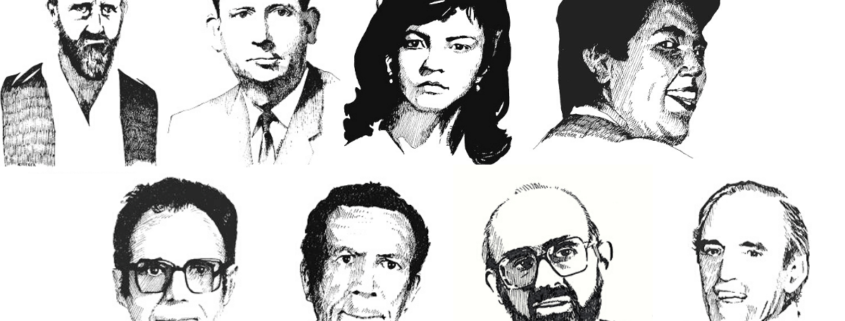
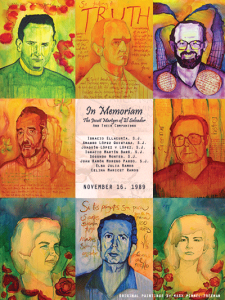



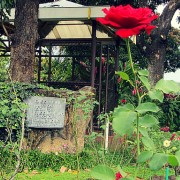
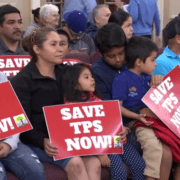
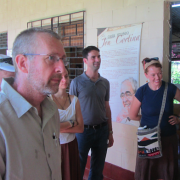

Leave a Reply
Want to join the discussion?Feel free to contribute!